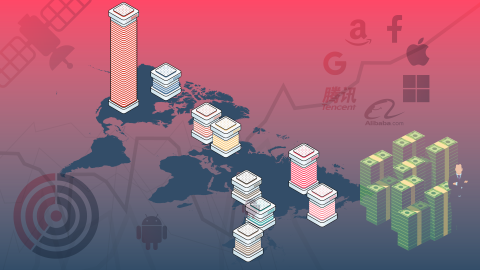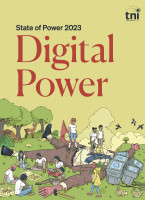One step towards regulating Big Tech
On October 25, a pivotal shift in global trade dynamics as the U.S. withdraws support from WTO trade proposals. Big Tech faces a game-changing moment.

On October 25, the U.S. government withdrew support for WTO trade proposals that would have further entrenched the power of major tech firms in the global economy. The decision is a major setback for technology companies that have been trying to expand their influence in the digital space through trade regulations.
The e-commerce negotiations will continue, but the main draft proposed by the US is no longer under consideration. While this development may have gone unnoticed, except by those who closely follow developments in negotiations around global trade, it marks a before and after in the fight to regulate the technology companies known as Big Tech.
But, let's take it one step at a time, what exactly is going on?
Many countries around the world are developing their policies around data, source code, trade in digital products, and other related goods and services. Many are yet to develop comprehensive domestic policies, and their capacity to do so would be curtailed if technology companies get their way.
In the current negotiations around ecommerce at the WTO, the lawyers for the technology giants had tabled a proposal for digital trade/e-commerce rules that sought to hinder any attempts at regulation, and open up digital markets, essentially putting handcuffs on the capacity for states to generate public policy and domestic regulation to their best interests. The proposal would make it difficult to achieve diverse, sovereign and people- and community-centered technologies.
This tendency to privilege corporations over states is not new or unique, as there are marked similarities between the digital free trade texts being negotiated in the WTO and the various existing bilateral and regional free trade agreements that deal with digital trade. While there are subtle differences, they all seem to be the same in terms of non-disclosure of source code, free flow of data, non-discrimination of digital products and non-taxation of electronic transmissions. All these common elements were prominent in the US-driven text, and many were likely influenced by it.
What does it mean that the draft has been withdrawn?
The inconsistencies long pointed out by civil society in terms of domestic regulation of AI and digital markets have not been duly heard. This poses a danger to democracy and the economy, given the enormous power given to technology companies.
But the significant fact that the US has withdrawn that draft marks a warershed moment. We could say that for the first time, the warnings were heeded or, at least, leaders acknowledged the necessity to wait and think a little more before deregulating a market whose impact on the economy and society the world is only beginning to understand.
The fact that the US withdrew the draft provides an important wake-up call for developing countries to also withdraw from such negotiations and start thinking about their national technology regulations before rushing to sign up to international deregulatory commitments1.
This significant development, however, does not imply either a halt to the e-commerce agenda at the WTO or to the bilateral and regional negotiations amongst countries.
But how different is digital trade in this context?
Civil society has for a long time been demonstrating against the global free trade agenda, which is an ongoing attempt in which trade rules are generated to liberalize and deregulate markets and to reduce the role of states. The consequences of such a trade system are not difficult to see: in a world without rules and without the capacity for states to regulate, the law of the jungle abides, and the strongest wins. In this case, the most developed countries and their corporations stand to gain (not necessarily their people!).
The free trade agreements negotiated between and among multiple countries, as well as the multilateral liberalizing agenda in the WTO, always sought a more open and deregulated market, benefiting large corporations, to the detriment of the people.
The digital economy agenda is no different. The aim of these digital free trade agreements as they currently exist is the absolute monopoly of technological production by a handful of deregulated companies that are not accountable to governments or the population.
The inconsistencies of these negotiations with the regulations proposed by the EU had already been pointed out in numerous documents and investigations2. However, the complaints have not been heard until today...
So, what comes next?
Clearly, we must continue fighting for more democracy in the digital economy at large. And in this sense it is necessary to express more emphatically that what civil society has been expressing for years is true: we must stop the negotiations that aim to deregulate digital markets at the global level, both in bilateral free trade agreements and in the WTO and other regional agreements. It is necessary to continue moving forward to stop negotiations that are harmful to economic development, technological diversity, the protection of democracy, culture, education and public policy, among other effects.
At the same time, it is necessary that the States do not renew the moratorium on electronic transmissions at the next WTO ministerial meeting in Abu Dhabi in March 2024: this moratorium has the effect that technology companies do not pay customs duties on the sale of goods on the Internet, such as books, video games, music and others. This moratorium is not only intended to be extended indefinitely, but also to extend its scope to goods and services in the economy.
It is time for states to regulate what happens on the Internet.
It is time to control the damage we have suffered as a society due to the tremendous power we have given to technology corporations.
A diverse, democratic and inclusive technological world is possible. The paralysis of e-commerce negotiations at the WTO is just one step towards working for a more just global digital society.


